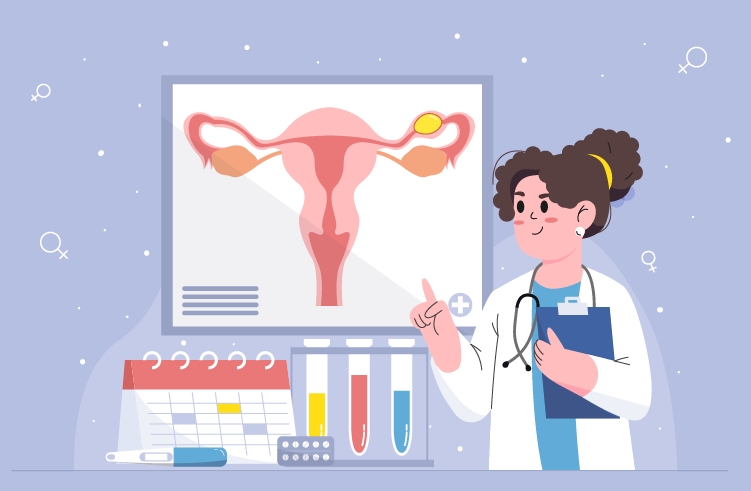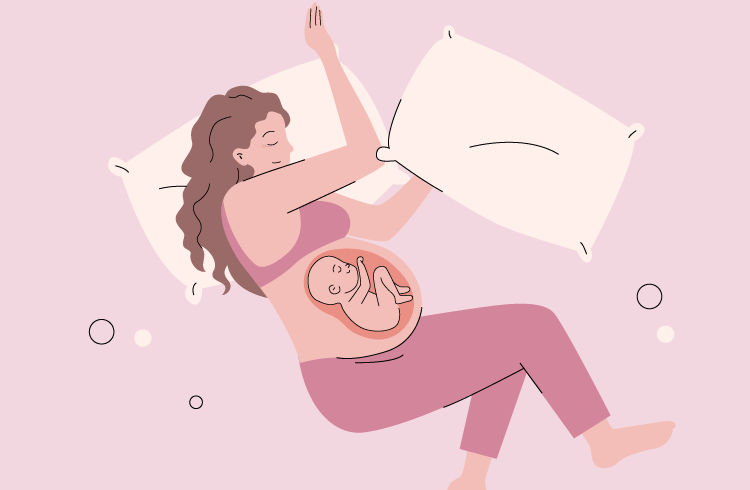What is Perimenopause?
Perimenopause, as the name suggests, is the pre-menopausal period when your body slowly transitions to menopause, which usually lasts between 2-10 years. Menopause marks the end of your childbearing years when estrogen levels in your body gradually decline and your ovaries stop releasing eggs. Symptoms of menopause such as hot flashes, sleep problems, and vaginal dryness can also occur intermittently during the pre-menopausal period.

Most women will experience signs of perimenopause, such as irregular periods, in their 40s. The medical term for irregular or no periods for 12 months is that you are officially going through menopause.
Symptoms of Perimenopause
Perimenopause is a natural process in which the ovaries gradually stop working. The ovaries will ovulate erratically and eventually stop ovulating altogether, and the last menstrual cycle may be prolonged and the bleeding may become irregular.
Perimenopausal symptoms are caused by erratic estrogen levels in the body. When estrogen is high, you may experience symptoms of PMS. When estrogen is low, you may experience hot flashes or night sweats. These hormonal changes may be mixed with the normal physiological cycle.
Specific Symptoms of Perimenopause
Emotional Changes: Such as irritability, sudden depression, or crying.

Irregular or no menstrual periods: Menstruation that is heavier or lighter than usual. Menstrual cycles may become shorter or longer.
Hot flashes: Sudden feeling of heat all over the body, usually starting in the chest or face and spreading throughout the body.
Over sweating at night: Hot flashes cause body sweating, and always occur at night.
Insomnia: Emotional changes, hot flashes, and unstable estrogen levels may be the factors that affect your sleep quality. It is difficult to fall asleep or stay asleep during perimenopause.
Vaginal dryness discomfort during sex: Decreased cervical fluid production makes the vagina become less lubrication, resulting in discomfort during sex.
Urinary urgency (frequent urination): During perimenopause, the decreasing estrogen levels may weaken the structures around the pelvic organs, which leads to a sudden urge to urinate and to urinate frequently.
Fatigue: Frequent emotional ups and downs and physical discomforts can make exhaustion intense.
Fat: Changes in hormone levels in the body can cause metabolism to slow down and gaining weight becomes easy.
The perimenopausal symptoms can last for a few months or even several years. The low estrogen level can also lead to osteoporosis or changes in cholesterol levels. Please engage a regular checkups with your healthcare provider to keep an eye on your reproductive health.
How to Treat Perimenopause?
Entering the menopausal stage is something that happens naturally as you age, and there are no medications or treatments available to stop the onset of menopause and perimenopause in women. The effects of perimenopause can be minimized by having a good mind and maintaining a healthy lifestyle.
However, some supplements or medications can help treat lowered estrogen levels in the body.
For emotional changes, we recommend meditation, yoga, and other soothing exercises, or traveling and hiking to be close to nature to counteract mood swings. But if it i severe mood changes, you can take a moderate amount of antidepressant medication to help alleviate mood swings or depression.
In response to changes in hormone levels, estrogen supplements in the form of creams, gels, patches, pills, etc can be your choices addressing it. Also, birth control pills can help stabilize your hormone levels and relieve symptoms. Tracking your BBT to take control of your menstrual cycle health by a ovulation tracker may also helps you be ready for future hormone level changes.
Regular use of vaginal creams can help relieve your vaginal dryness and reduce discomfort during sex.
Moreover, a healthy diet and regular exercise play a vital role in relieving perimenopause symptoms. All medications should be taken as directed by your doctor, and keep in touch with your doctor to ensure your reproductive health.
This article is the original creation of Femometer. All rights reserved by Femometer Inc. To reproduce, distribute, or reference the content, please reach out to us in advance to prevent any potential legal issues. Copyright © Femometer Inc.










